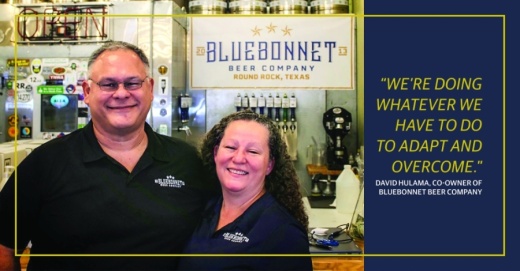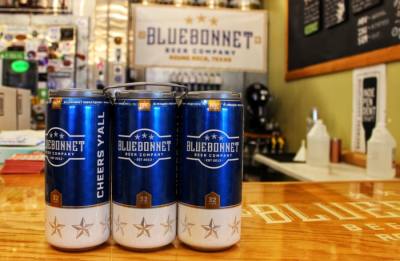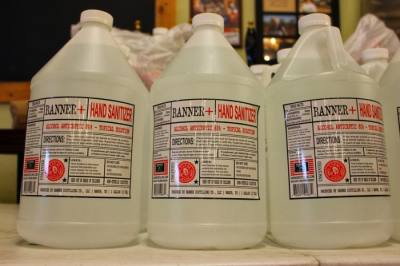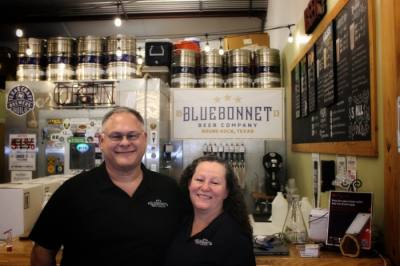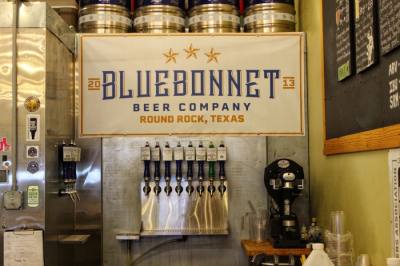“The coronavirus is the biggest challenge craft brewers have faced since prohibition,” he said. “It’s not a complete shutting down of alcohol production businesses, but it’s pretty close.”
Since March 17, Bluebonnet Beer Co.—alongside breweries across the state of Texas—has been forced to shutter its taproom in response to orders from state and county leaders. These restrictions—intended to slow the spread of the coronavirus—have greatly slowed revenue for the Hulamas and others in the industry.
Wholesale has taken a hit, David Hulama said. With restaurants ordered to close their dine-in facilities, Bluebonnet’s keg sales plummeted approximately 98% over the last 3 weeks, he said. Last year, keg sales accounted for around 40% of the company’s revenue.
“Our keg sales have essentially stopped because we sell to bars and restaurants, and since their [dine-in facilities] are closed, they’ve stopped purchasing kegs,” he said.
Likewise, on-site sales have taken a nose dive—dropping some 75% since March 17—as residents stay home.
Still, the Hulamas said they are innovating to stay afloat in these troubling times. They expanded their hours to be open for beer to-go sales six days a week from noon to 7 p.m. Previously, Bluebonnet’s taproom was only open three days a week, Clare Hulama said.
In addition, customers can now purchase 1-gallon jugs of hand sanitizer, made by Banner Distilling Co. in Manor, through Bluebonnet’s online and in-store sales.
The brewers also activated online beer sales for the first time in company history. Customers can order and pay online and drive up to the brewery for a minimal-contact pickup process.
“We’re doing whatever we have to do to adapt and overcome,” David Hulama said.
However, in yet another recent setback, the brewery sold out of growlers, which are refillable glass jars, and crowlers, which are 32-ounce cans of beer to go.
“We have no way to package beer right now,” David Hulama said. “The only thing we can do is refill people’s growlers if they bring them in. We run the growler through our wash and sanitizing process to make sure everything is clean before we take it behind the bar to fill it.”
The purchase of additional new growlers and crowlers is backordered, the Hulamas said. And while a small shipment of growlers is set to be delivered to the brewery in the next few days, it will likely be several weeks before they can fully restock and continue packaging their product.
“We’re not the only place in town trying to get these supplies,” David Hulama said. “Every brewery—in Austin, across the state and really the whole country—is trying to get their hands on these. They can’t make the cans fast enough.”
Early April is traditionally a busy season for craft brewers with events such as crawfish boils and people gathering to enjoy pleasant weather with friends, he said. The flourishing field of bluebonnets behind the brewery is a reminder of what could have been a thriving spring season for their business, with customers enjoying cold beers on hay bales overlooking the field.
“I do strongly believe we will come out of this, not completely unscathed, but hopefully with a better understanding of how to insulate ourselves should something like this happen again,” he said.




